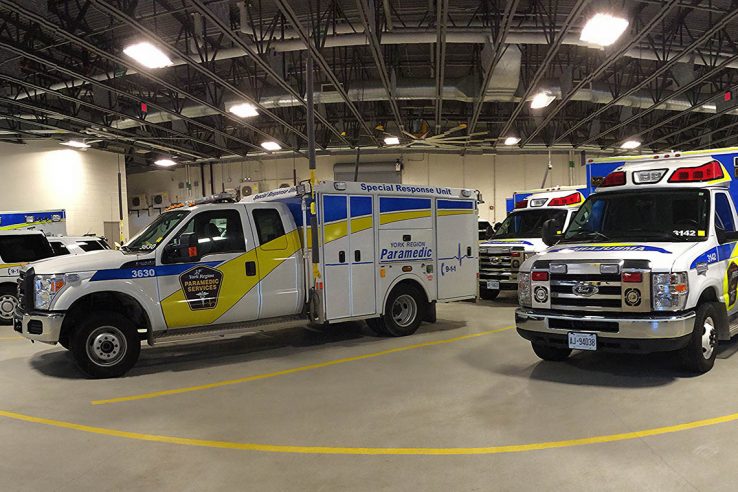Can paramedics fill the gaps in primary care for chronically ill patients? Researcher and patient outcomes expert Katie Dainty, conducted a qualitative study of advanced training program EPIC, to find out.

The idea behind the program which Dainty and her team of researchers designed, was to effectively reduce the number of times chronically ill patients found themselves in emergency care or hospital waiting rooms, by training paramedics from the York Region and Grey-Bruce Paramedic Services to treat and assess these patients during home visits.
“Patients with chronic illnesses have an array of complex needs but they don’t always require hospital visits or emergency care” said Dainty, who is an assistant professor at IHPME and Research Chair in Patient Outcomes at North York General Hospital. “But there is often no other way for them to get the care they need, and they are forced to call 911.”
Most chronically ill patients surveyed did not want to end up in emergency rooms, where they can experience long wait times and end up exposed to illnesses that can complicate their own conditions further. Yet with the way our primary care system is structured, there is often little choice in the way of alternate resources.
“That’s where the use of community paramedics can play a role in helping our health system address this gap in accessible primary care,” said Dainty.
Community paramedics have been around for a long time in various forms across the province and the country. In rural areas of Nova Scotia, paramedics are often the only resource for care where transportation to a hospital is not always an option. “These are highly trained individuals, who in rural areas, often have a lot of down time between calls. If we can reallocate these resources in Ontario, we will be able to provide patients with better care solutions,” said Dainty.
The qualitative study, looked at not only whether the program was working, but also how it affected the health outcomes for these patients, many of whom suffered from a variety of complex care needs associated with congestive heart failure, diabetes, and other conditions.Throughout the trial paramedics would visit the homes of these patients every three months and using special equipment, would conduct complete physical assessments, all without the patient having to be transported out of the home.
“We found quickly that our focus as paramedics turned from being ‘reactive’ to ‘proactive’,” said Scott Luce, a community paramedic for the county of Grey. “This makes all the difference in the world. It keeps our patients at home, where they want to be and it also catches other health problems early on, such as 2nd and 3rd degree heart blocks, and as a result, these patients have seen earlier treatment.”
Dainty’s study also revealed further benefits of this type of care. “We found that patients were developing a social relationship with these paramedics as they were helped through the rough patches of their illnesses,” she said.
Often the paramedics were able to assess the entire home situation, speak with caregivers, spouses and children, and determine if the patient needed further assistance, such as with nutrition or home care. “That type of care isn’t something doctors in emergency rooms are able to provide,” said Dainty.
Luce agrees, “Patients love the program, primary care physicians respect it, and the community paramedics enjoy a level of satisfaction rarely seen in paramedicine. A rare case of win, win, win,” he said.
The study is published online in the Health Systems Research Journal.
Related News

Sign up for IHPME Connect.
Keep up to date with IHPME’s News & Research, Events & Program, Recognition, e-newsletter.
Get in Contact
Communications
Marielle Boutin
Email Address: ihpme.communications@utoronto.ca





